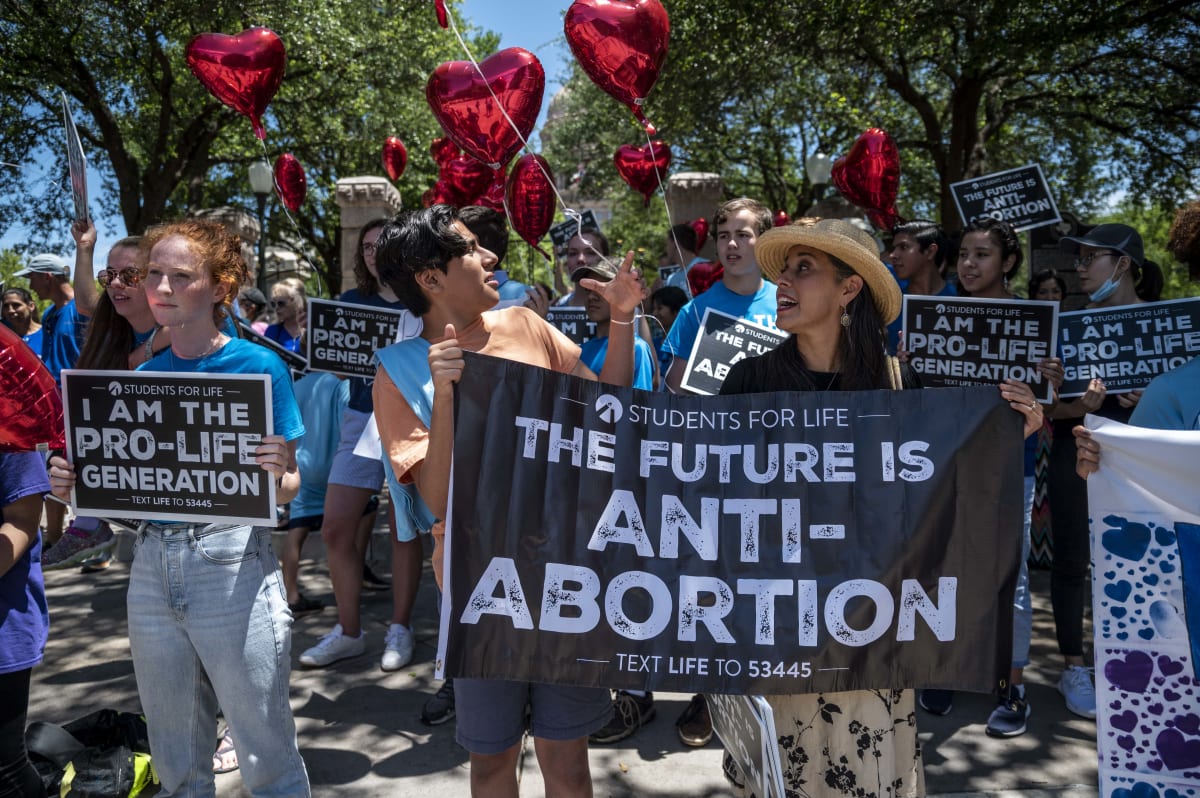Roe v Wade future to be decided in Supreme Court, here's what you need to know

From December 1, the Supreme Court of the United States (SCOTUS) will take up its most controversial case yet - abortion. The court is set to debate on the future of Roe v Wade, based on laws passed by Mississippi and Texas, which undermine the precedent. As Notre Dame law professor Sherif Girgis noted, "there are no half measures here," either the court reaffirms Roe v Wade, or wipes it away altogether.
Both states have made their disdain for Roe v Wade quite apparent, with Mississippi's AG even asking the SCOTUS to overturn it outright. In Texas, the state managed to bypass it entirely with S.B.8, the new abortion bill that bans abortions after six weeks. The bill has been seen as an inspiration, with other conservative states attempting to follow suit, such as Arkansas. In fact, many GOP-controlled states are expected to introduce similar heartbeat-style bills, as the party continues its war on abortion.
RELATED ARTICLES
Online demand for abortion medicine highest in US states with restrictive abortion policies
That's why the SCOTUS case is so vital. It could either give the GOP the greenlight to effectively ban abortion in over 20 states, leaving women with little choice after the party has also gutted social care and other services. It effectively means they will be forced to carry pregnancies to term, even if they aren't financially able to afford to raise a child.

Why does it matter?
As mentioned above, there are no half measures with this ruling. Texas managed to overcome Roe v Wade by putting the onus on citizens to report illegal abortions, and by setting a timeframe. The six weeks enshrined in Texan law has been largely condemned by medical experts, who say most women won't even know they are pregnant at that point. In Mississippi, the timeframe is 15 weeks, which is also being slammed for being too restrictive.
Since Roe v Wade isn't enshrined in the constitution, the court could simply choose to overrule the standard, thereby making abortion illegal all over the US overnight. It would not only allow states to issue abortion bans but also possibly a conservative US Congress, affecting other states as well. Whether that happens is unclear, but a ruling in favor of pro-life activists would effectively open the door for that option.
Who's debating?
The 6-3 conservative majority is what worries most pro-choice activists. "It’s going to be an uphill battle. And, our Supreme Court I’m afraid is politically partisan and to the right. Way to the right," lamented Debbie Craig to WLOX. Chief Justice John Roberts was the only conservative judge to oppose in the September vote, but he has swung on abortion before. Even if he does dissent this time, it won't be enough. Justice Clarence Thomas has openly called for Roe v Wade to be overturned and is likely to vote for it this time round.
The swing vote will possibly hinge on Justice Neil Gorsuch, who has the shortest record on abortion. He was the deciding vote in the court's September 5-4 ruling in favor of Texas, so is likely to be the deciding vote this time as well, if Roberts sticks with his September ruling. Justices Kavanaugh and Barrett are almost likely to vote to repeal Roe v Wade, while Kagan and Sotomayor are expected to vote for. Effectively, the future of abortion in the US lies in the hands of Roberts and Gorsuch.

The future of abortion
Should the court overrule Roe v Wade, Mississippi is one of 12 states ready to act almost immediately. In the near future, 26 states could enforce a near-total abortion ban according to the Guttmacher Institute. It would mean half the country wouldn't have access to abortion services, even in cases of rape. And of course, it also opens the door for federal laws on abortion, if the GOP manages to get back control of the House and presidency.
With Roberts' track record, things don't look very good right now for pro-choice activists. As The New York Post noted, "Since Roberts became chief justice in 2005, the court has moved in smaller steps on some issues, even when it appeared there was only a binary choice." From voting rights to organized labor, Roberts has led the court to chip away in favor of conservatives, something he could do here as well.
But, there's no middle path when it comes to abortion. Especially with Texas' loophole on the line. Needless to say, the choice before the court is as historic and important as Roe v Wade itself.










